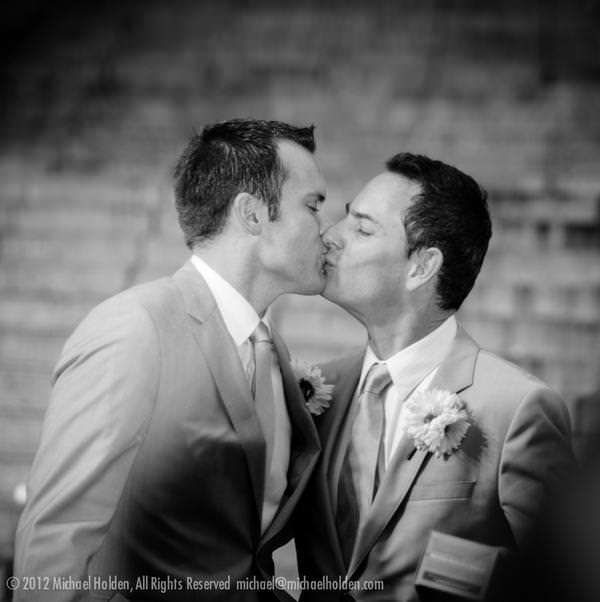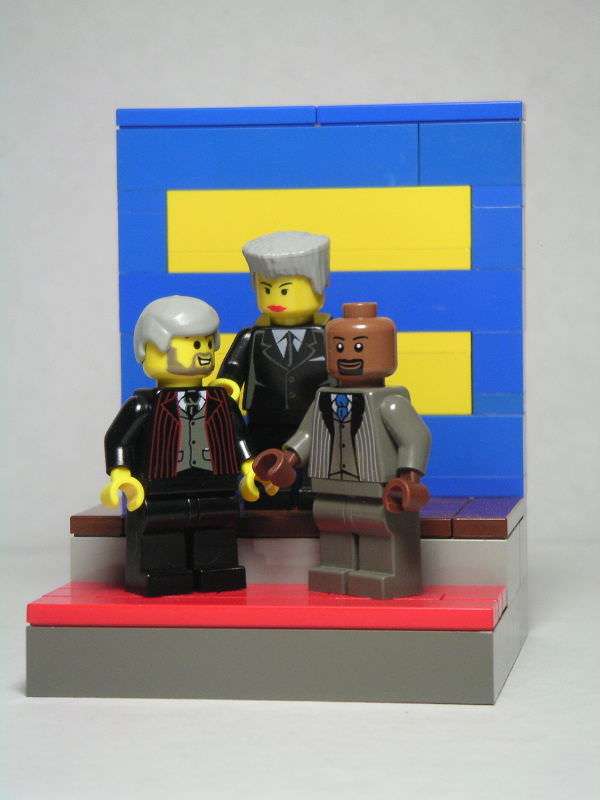The Non-Arguments Against Same-Sex Marriage

For a long time, many opponents of same-sex marriage relied on a non-argument to defend their position: Asked why they opposed letting gays marry, one of most common responses was something to the effect of "I believe that marriage is between one man and one woman." The problem was that this didn't tell you why the legal definition of marriage should be limited to one man and one woman. It was not really an argument at all; it was a restatement of the original position.
The lack of an argument didn't matter very much when the public was also overwhelmingly against same-sex marriage. But as public support has shifted, and legal challenges to the marriage status quo have worked their way through the court system, a handful of same-sex marriage opponents have attempted to actually defend their opposition. They still don't have much of a case.
To the extent that they have an argument, the one they have settled on is that marriage is fundamentally about bearing and raising children. As Archbishop Salvatore Cordileone, who chairs the United States Conference of Catholic Bishops' Subcommittee for the Promotion and Defense of Marriage, told USA Today last week, "To legalize marriage between two people of the same sex would enshrine in the law the principle that mothers and fathers are interchangeable or irrelevant, and that marriage is essentially an institution about adults, not children."
That is a strained argument given how many marriages are already essentially, even fundamentally, "about adults" rather than children. Marriage requires two adults; it does not require any children, or even any desire or plans for children. We do not prohibit infertile couples from marrying, nor do we outlaw marriages between senior citizens who are unlikely to produce or raise offspring. Young, fertile couples are not required by the state to have children; even if a couple publicly states its intention not to reproduce, they are still just as eligible to marry as if they intended to outbreed the Duggars.
Cordileone recognizes that there are exceptions, but says that we should note that "when a man and woman cannot have children together, that's an accident of circumstances, the exception to the rule." Yet cannot is not the same as do not. Not all childless married couples are childless by accident; many make the joint decision not to reproduce, or even to disable their own reproductive capabilities—and yet they, unlike gays, are still allowed to marry.
Even ignoring that, however, Cordileone's argument doesn't hold up. He seems to think that infertile married couples are the exception that proves the need for a one man/one woman rule; to me they are the exception that proves the opposite-sex rule isn't necessary. If an infertile male-female couple should be entitled to a legal recognition of a marriage that can, without adoption, only be "about adults," then the impossibility of bearing children is not a very good reason to prohibit legally recognizing the marriages of same-sex couples in the same situation.
And what's to say that prohibiting gay marriage would stave off the rise of a more adult-centric view of marriage anyway? As New York Times columnist Ross Douthat pointed out over the weekend, attitudes about marriage are already rapidly changing. Americans, he writes, "are less likely to see children as important to marriage and less likely to see marriage as important to childbearing (the generation gap on gay marriage shows up on unwed parenting as well) than even in the very recent past."
And for that, Douthat suggests, we can probably blame gay marriage.

Carefully noting that correlation is not causation, he nonetheless strongly implies that the shift was partially caused by the rise of gay-marriage as a cause and the many proponents of same-sex unions who dismissed the "procreative understanding" understanding of marriage.
But if there is a causal relationship here, it may well be that it is actually the reverse—that evolving attitudes about marriage as we already know it helped pave the way for acceptance of marriage between same-sex couples. Americans began to experiment with a looser, freer marriage culture—one that emphasized individual adult happiness over traditional social rules and expectations, and one that coincided with couples (even religious couples) having fewer children—decades before gay marriage entered the popular discussion. It seems just as likely, then, that newfound attitudes about gay marriage are the byproduct of changes in attitudes about straight marriage than the other way around.
There's a larger question here as well, which is: So what? If Americans continue their shift to a more adult-centric view of marriage, and allow gays to marry in the process, would that really be so bad? Tellingly, Douthat does not detail the specific harms that might come as a result of such a shift—except to note the presence of the shift itself. Instead, he writes that "a more honest, less triumphalist case for gay marriage would be willing to concede that, yes, there might be some social costs to redefining marriage. It would simply argue that those costs are too diffuse and hard to quantify to outweigh the immediate benefits of recognizing gay couples' love and commitment."
I would not say that there will necessarily be social "costs" to legally recognizing same sex marriages, but I agree there will probably be an array of social changes and ripple effects, some obvious but most relatively subtle. It's also likely that we won't successfully predict all of these changes in advance. But that is not a reason to specifically fear same-sex marriage; it's just a generalized fear of unknown social change.
It's no surprise that same-sex marriage opponents often defended their position by restating their original position: Fundamentally, much of the argument against gay marriage comes down to the idea that if we allow marriage to change, then marriage will be different than it is now. Well, yes, but that's the point.


Show Comments (146)